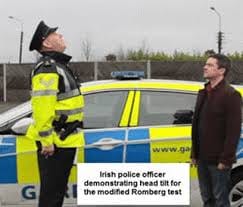 In many places, “drugged” driver cause more fatal crashes than “drunk” drivers. So, Tarrant County prosecutors pursue these cases very aggressively. Prescription drugs and marijuana account for a little over half of drugged driving prosecutions in Texas.
In many places, “drugged” driver cause more fatal crashes than “drunk” drivers. So, Tarrant County prosecutors pursue these cases very aggressively. Prescription drugs and marijuana account for a little over half of drugged driving prosecutions in Texas.
The Lone Star State has a very broad DWI drug impairment law. Under Section 49.04, it’s illegal to drive under the influence of “alcohol. . .a drug,. . .or any other substance.” Anything in your medicine cabinet is a drug. Additionally, many of the foods and beverages in your pantry and refrigerator may qualify as impairing substances. That includes things like sugar and caffeine.
Drugged Driving Consequences
DWIs carry significant direct consequences, such as jail time and drivers’ license suspension. But probation is generally available in lieu of jail time, especially if the defendant is a first-time DWI offender. And, an occupational drivers’ license is usually available. Judges often add additional requirements, like an Ignition Interlock Device, to the standard ODL restrictions.
The indirect consequences of a DWI often hurt the most. Auto insurance is a good example. Most offenders must purchase SR-22 insurance and keep it for at least three years. This high-risk insurance often doubles or triples auto insurance rates. When you see claims like the average DWI costs $25,000, higher insurance premiums make up the bulk of that expense.
Additionally, even though it is not a crime of moral turpitude, DWI carries a significant social and economic stigma. Aggressive public advertising campaigns shame and even ridicule people with DWI convictions. Additionally, such a black mark cuts off many economic opportunities, such as a rideshare driver.
Fighting Drugged Driving Prosecutions in Court
Tarrant County prosecutors almost always rely on circumstantial evidence in these instances. There is no Breathalyzer test for drug use, at least not yet. Furthermore, officers almost never order blood tests, because they do not want to bother with search warrants. Typically, this evidence involves a DRE (Drug Recognition Expert) and the FSTs (Field Sobriety Tests).
Most Texas courts let prosecutors use DREs. These individuals often testify that the defendant’s physical appearance was consistent with drug use.
There are several problems with DRE testimony. These police officers are usually not “experts” in the sense that they have little training in this area. Furthermore, the DRE usually arrives on the scene after the stop. Since the officer already suspects drug use, the DRE’s conclusion is usually a self-fulfilling prophecy.
The approved FSTs include the DWI eye test (horizontal gaze nystagmus test), the walking-a-straight-line test, and the one-leg stand. The HGN test has some serious reliability problems. And, it is almost impossible to complete the other two tests whether the driver is impaired or not. As a result, the conviction rate in non-test cases is almost half the rate in chemical test cases.
DWI-drug arrests often do not hold up in court. For a free consultation with an experienced criminal defense attorney in Fort Worth, contact Herreth Law. Convenient payment plans are available.

